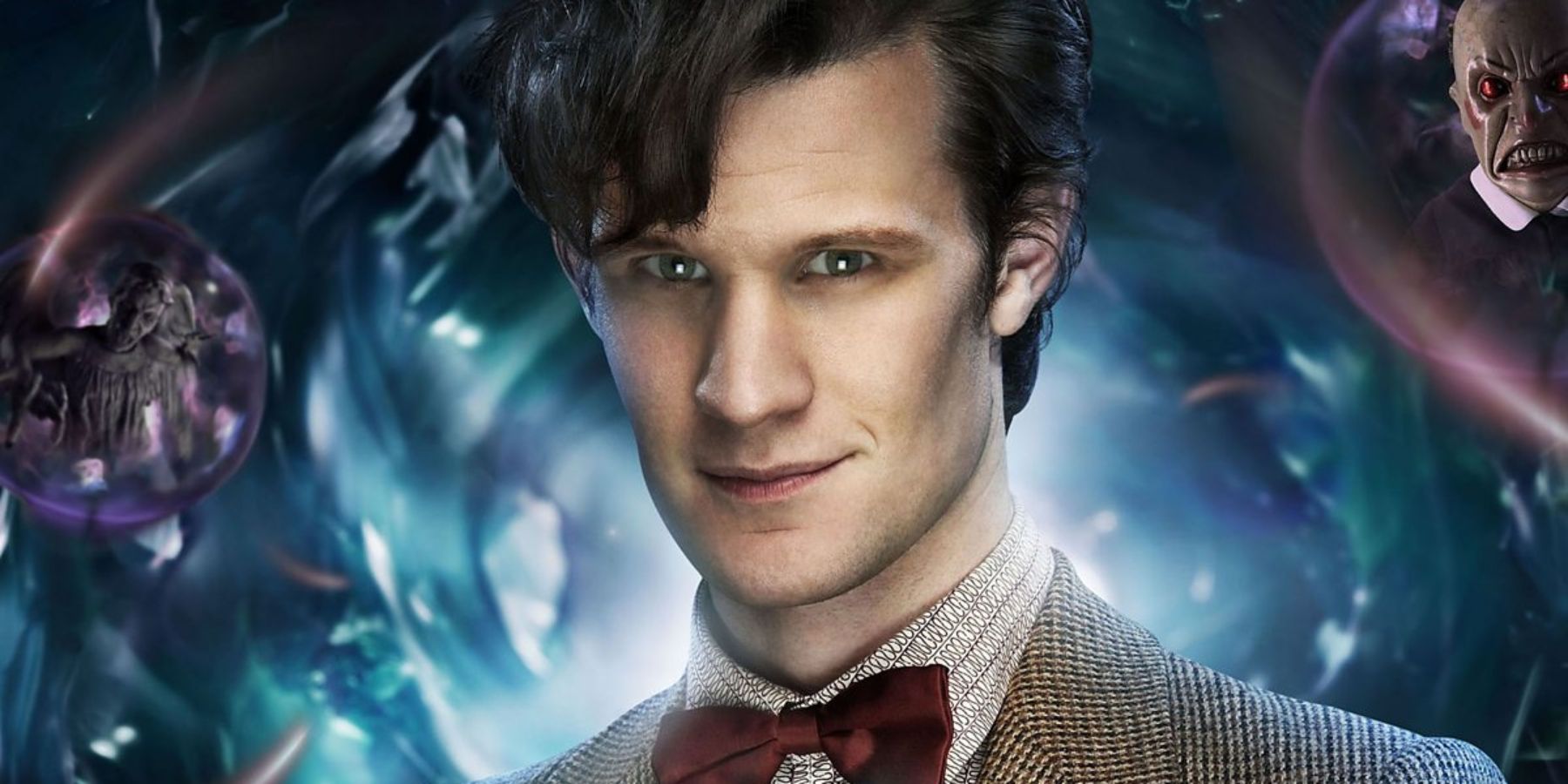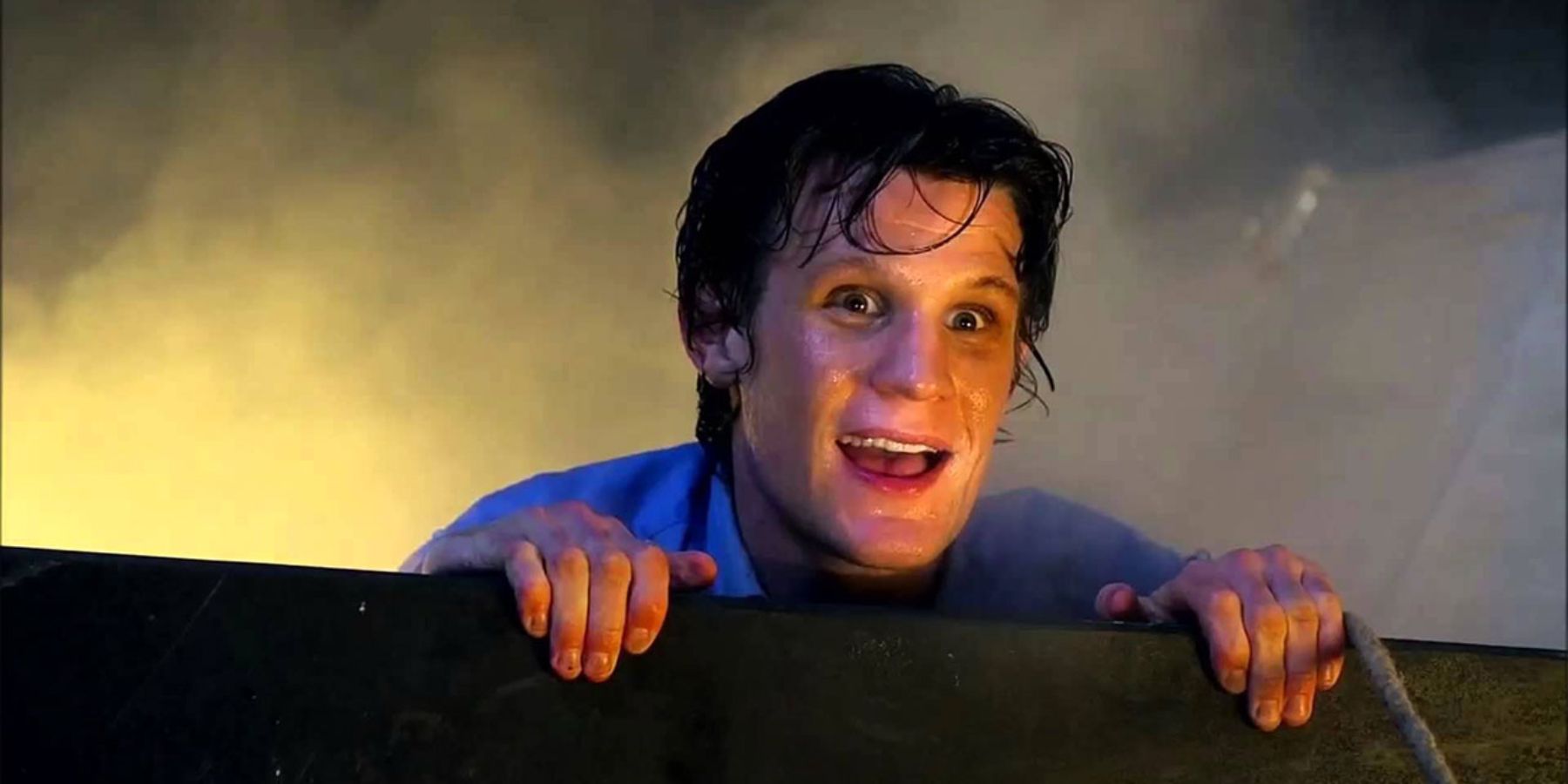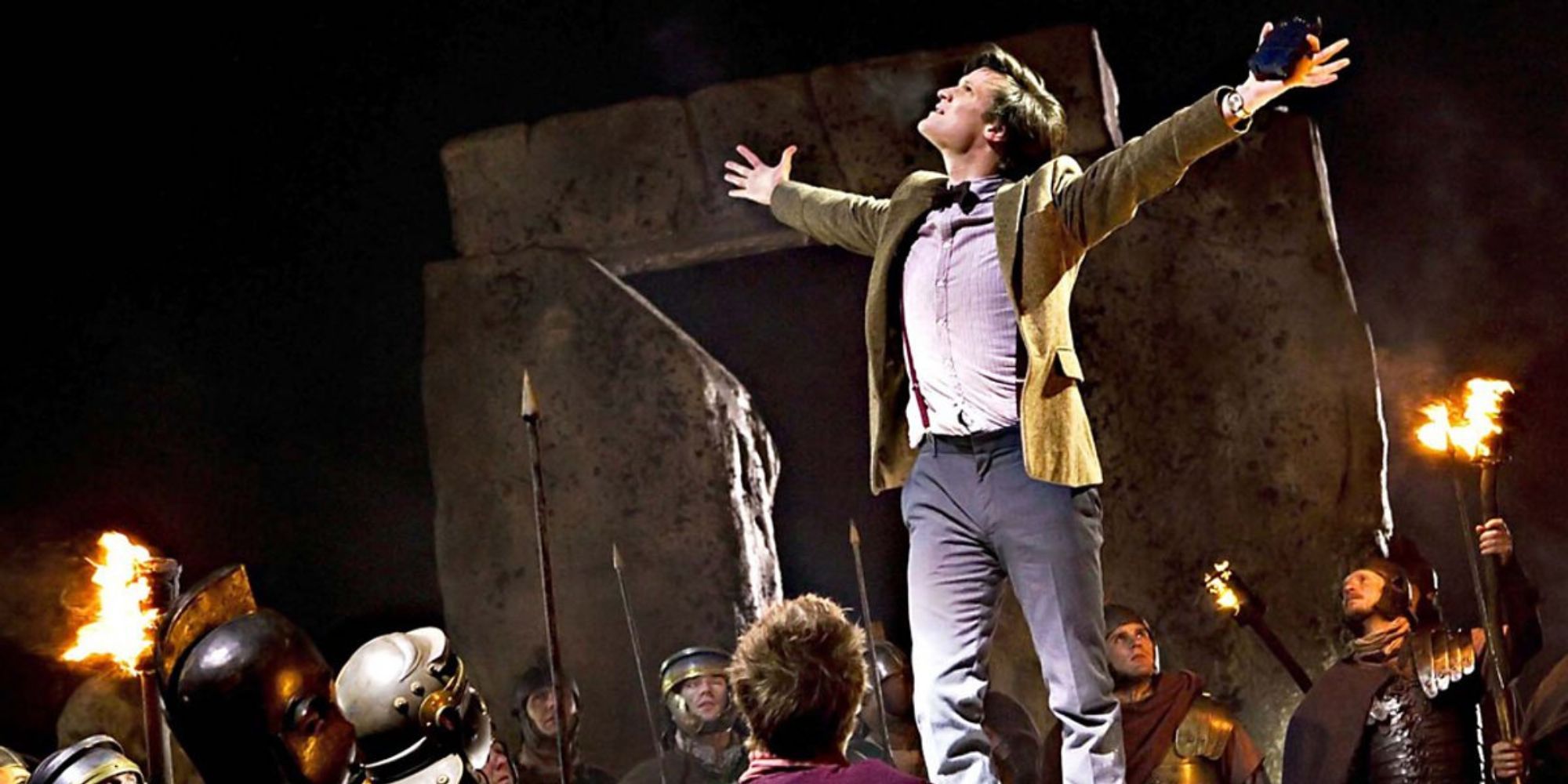While he isn’t quite as much of a fan favorite as other Doctors like David Tennant or Peter Capaldi, Matt Smith’s run as the Eleventh Doctor is still looked back on fondly by fans of Doctor Who. However, his tenure was nevertheless a tumultuous one in terms of quality.
It’s easy to be nostalgic for Steven Moffat’s time as Doctor Who showrunner after his successor, Chris Chibnall, proved wildly unpopular among fans of the series. But it’s important to remember that the Moffat era was one of high highs and low lows, and Matt Smith’s career as the Doctor contained plenty of both. And despite a strong beginning to his tale, the Eleventh Doctor’s story wound up going downhill all too quickly.
Eleventh Hour Victory
After the regeneration of David Tennant’s Tenth Doctor in the 2009 Christmas special “The End of Time,” Matt Smith’s Eleventh Doctor received his first full episode with the Series 5 premiere, “The Eleventh Hour,” which aired in April 2010. Written by Moffat himself at the start of his career as showrunner, the episode is just about the best possible introduction to the Eleventh Doctor. Like Tennant before him, Smith’s Doctor is upbeat and eccentric while also being gentle, compassionate, and incredibly cunning. However, Eleven is far from a carbon copy of Ten. He’s much more of an oddball, as shown by his newfound love for outdated outfits and unorthodox food pairings. He also has quite the flair for the dramatic, even compared to his predecessors. In a climactic scene that remains iconic to this day, the Eleventh Doctor displays his showmanship by delivering a theatrical speech to an invading alien ship, sending it running back home with words alone.
Additionally, “The Eleventh Hour” also serves as an introduction to the Doctor’s new companion, Amy Pond. Before she became a fan favorite in the MCU as Nebula, Karen Gillan made a splash in Doctor Who as the snarky, capable Amy Pond, who has immediate chemistry with Smith’s Doctor. This fun new dynamic would only become stronger with the addition of Amy’s love interest Rory (Arthur Darvill) to the TARDIS crew, resulting in one of the most beloved main casts in the history of the series. While new Doctors and companions alike often take some getting used to among the fandom, Smith and Gillan were an instant hit. “The Eleventh Hour” is still remembered to this day not just as one of Smith’s best episodes, but as one of the best introductions to a new Doctor in the show’s history.
However, a new cast and crew wasn’t all that the Series 5 premiere had to offer. “The Eleventh Hour” set up a strange new threat for the Doctor to chase — a series of cracks in space and time, associated with the mysterious words “Silence will fall.” And indeed, nearly every episode in the season featured the cracks in some capacity. At this point, building up an overarching plot throughout a season was nothing new to the revived series. Russell T Davies featured similar foreshadowing throughout his tenure as showrunner, such as the recurring phrase “Bad Wolf” in Series 1. However, Moffat went a step further, often tying the cracks directly into the plot of individual episodes. Not only did this create an unprecedented sense of continuity and serialization throughout Series 5, it also helped build hype for the season finale.
Everything came to a head in “The Pandorica Opens,” the first half of the two-part series finale. The episode starts with a bang, kicking things off with an extended teaser that brings back various supporting characters from throughout the season. Everyone from Vincent van Gogh to Winston Churchill to River Song herself work together to pass along a mysterious message to the Doctor, setting the story in motion. The main plot of the episode is just as compelling, featuring the Doctor discovering a mythical alien artifact beneath Stonehenge — the Pandorica, a prison said to contain the most dangerous being in existence. Soon, all of the Doctor’s greatest enemies converge to claim the Pandorica for themselves, and things only get more thrilling from there.
Going Silent
“The Pandorica Opens” remains a definitive episode within the Moffat era, and it’s easy to see why. For starters, there’s the Doctor’s famous speech as he stares down his gathered foes at Stonehenge. And of course, there’s the utterly mind-blowing ending, which remains one of the greatest cliffhangers in Doctor Who history to this day. The latter half of the finale, “The Big Bang,” fares a bit worse. Many feel that it leans a bit too hard into convoluted time travel shenanigans and features a rather contrived solution to the seemingly insurmountable danger. However, it nevertheless manages to end on a high note thanks to some truly powerful performances from Smith and Gillan.
Unfortunately, the flaws of “The Big Bang” would prove to be a harbinger of things to come. The plot of Series 6 is focused on unraveling the secrets of the Silence, the shadowy masterminds who had been teased since “The Eleventh Hour.” But throughout the season, no concrete answers on the Silence are provided, only more questions. As such, the mysteries that were so compelling back in Series 5 end up largely unresolved. To make matters worse, fan-favorite character River Song receives an astoundingly overcomplicated backstory, removing much of the mystique that made her so fascinating to begin with.
Series 7, Matt Smith’s last season before being replaced by Peter Capaldi, doesn’t fare much better. It has some highlights, like the epic 50th anniversary episode “The Day of the Doctor” and the introduction of the immensely talented Jenna Coleman as new companion Clara. But overall, it suffers from rejecting an overarching plot in favor of generally weak standalone episodes. The unceremonious departure of Amy and Rory doesn’t help either. In the end, the mystery of the Silence and the cracks in time isn’t properly addressed until “The Time of the Doctor,” Smith’s very last episode. Even then, the actual answers are both unsatisfying and abrupt, quickly brushed aside for a largely unrelated main plot.
In hindsight, it’s easy to see why Series 5 is widely regarded as Smith’s strongest season. Not only does it feature a brilliant cast and some truly unforgettable episodes, it also managed to interweave an interesting ongoing mystery throughout the entire season. It expertly built intrigue around the nature of the cracks in time and the Silence that created them. But as later seasons failed to provide satisfactory answers, the initial hype around the Eleventh Doctor era quickly dwindled as the quality of the episodes began to decline — a predicament not unlike Moffat’s other famous series, Sherlock. But even if Matt Smith’s time as the Doctor suffered from diminishing returns, it’s still worthwhile to look back at his early adventures and remember how the Eleventh Doctor became so popular to begin with.



